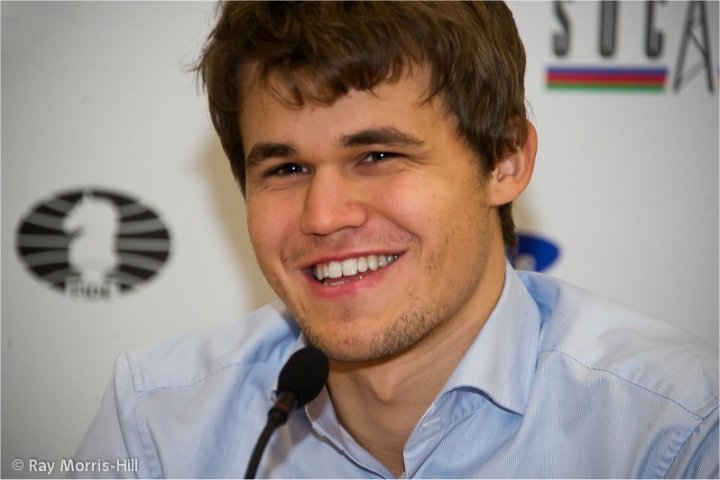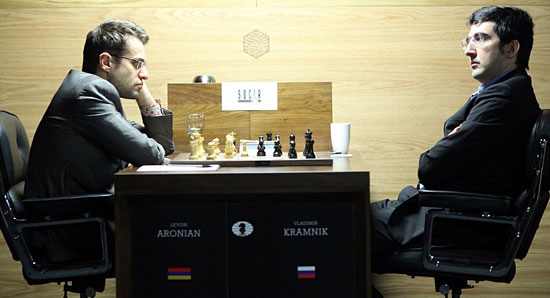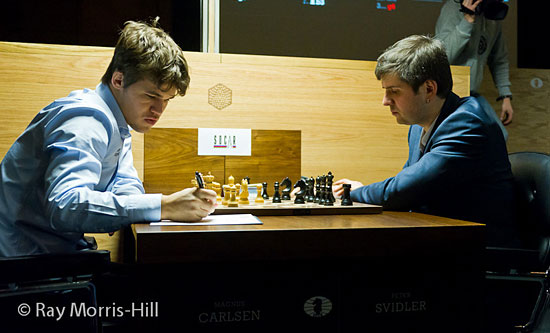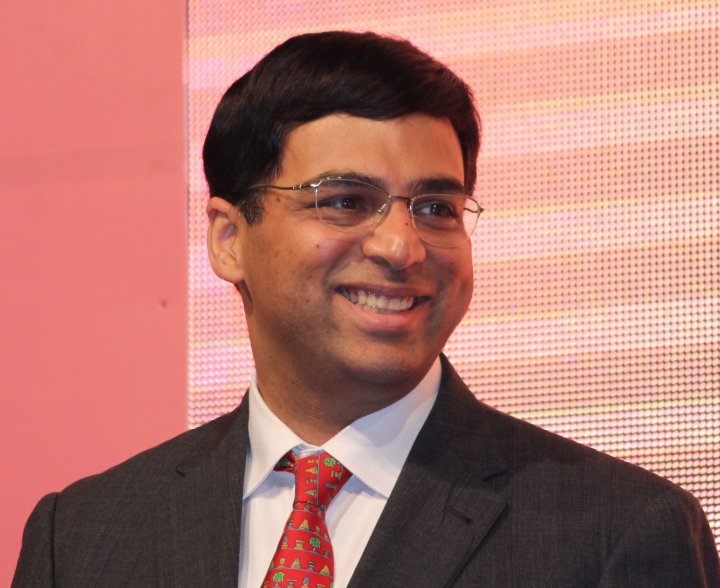


Master Class Vol.8: Magnus Carlsen
Scarcely any world champion has managed to captivate chess lovers to the extent Carlsen has. The enormously talented Norwegian hasn't been systematically trained within the structures of a major chess-playing nation such as Russia, the Ukraine or China.
After the scandal at the candidates tournament 1962 in Curacao, it took 51 years before the FIDE returned to this format to establish the challenger of the world champion. These 51 years saw candidate matches, with rivaling organisations that both organised world championships, a tournament that was called candidates tournament and took place in 1985 in Montpellier, in France, two tournaments, in which the players directly played for the title (San Luis in Argentina, 2005, won by Veselin Topalov, and Mexico City, 2007, won by Viswanathan Anand), but there was no classical candidates tournament, in which the winner gained the right to challenge the reigning world champion.
That is, until March 2013, when an eight-player double-round-robin candidates tournament took place in London. The way this tournament went and the drama of it gave provided supporters of this classical format with good arguments.
Tournament favourite in London was Magnus Carlsen. Since July 2011 Carlsen had been the world's number one and at the start of the tournament he had a rating of 2872 and was leading the world ranking list by a huge margin.
The Norwegian started well. After two draws in the first two rounds he scored two wins (against Boris Gelfand and Alexander Grischuk), followed by a draw in round five and another win in round six (against Peter Svidler). After another draw in round seven, Carlsen finished the first half of the tournament with 5.0 / 7 (+3) and seemed to be well on his way to becoming the challenger of reigning world champion Anand.
But then things started to get difficult. Though Carlsen won a nice game against Gelfand in round ten, he also seemed to get nervous because Vladimir Kramnik was suddenly winning one game after the other.
In the first seven rounds Kramnik had had a couple of good positions but did not win a single game — he started with seven draws. But then he got going and scored 4½ / 5 in rounds 8 to 12. Carlsen, however, lost in round twelve against Vassily Ivanchuk who until then had played rather erratically.

Kramnik took the lead in round twelve | Photo: World Chess
With two rounds to go Kramnik was suddenly half a point ahead of Carlsen and new favourite to win the tournament. The finish of the tournament could hardly have been more dramatic: in round 13 Kramnik and Gelfand drew while Carlsen showed against Radjabov why he enjoys the reputation of being able to win endgames that seem to be impossible to win.
With one round to go Carlsen and Kramnik both had 8½ /13 and shared the lead. In the last round, Carlsen played with White against Svidler, while Kramnik played with Black against the unpredictable Ivanchuk. Carlsen also had a better tie-break score than Kramnik. The rules stated that if two players had the same number of points after the end of the tournament, their direct encounters would decide and after that the higher number of wins. Carlsen and Kramnik had drawn both of their games but Carlsen had won more games than Kramnik — though he, of course, also had lost more games than Kramnik, as critics of this tie-break system pointed out.
At any rate, Carlsen could take his fortune into his own hands: he "only" needed to beat Svidler to become the challenger. However, should he draw against Svidler while Kramnik won against Ivanchuk, Kramnik would play another world championship match against Anand.
No wonder Kramnik and Carlsen were both nervous — they simply did not know whether to take risks to win or to play it safe. In the end, they both lost.

A remarkable finish to a wild tournament | Photo: Ray Morris-Hill
This made Carlsen tournament winner on tie-break and challenger of Vishy Anand — and in November 2013 Carlsen also became new World Champion.
| Rk. | Title | Name | 1 | 2 | 3 | 4 | 5 | 6 | 7 | 8 | Pts. |
| 1 | GM | Magnus Carlsen | ½½ | ½½ | 01 | 1½ | 11 | 0½ | ½1 | 8.5 / 14 | |
| 2 | GM | Vladimir Kramnik | ½½ | 1½ | 1½ | 1½ | ½½ | 0½ | 1½ | 8.5 / 14 | |
| 3 | GM | Levon Aronian | ½½ | 0½ | ½0 | ½½ | 10 | 11 | 11 | 8.0 / 14 | |
| 4 | GM | Peter Svidler | 10 | 0½ | ½1 | ½½ | ½½ | ½1 | ½1 | 8.0 / 14 | |
| 5 | GM | Alexander Grischuk | 0½ | 0½ | ½½ | ½½ | ½½ | 1½ | ½½ | 6.5 / 14 | |
| 6 | GM | Boris Gelfand | 00 | ½½ | 01 | ½½ | ½½ | ½½ | ½1 | 6.5 / 14 | |
| 7 | GM | Vassily Ivanchuk | 1½ | 1½ | 00 | ½0 | 0½ | ½½ | 10 | 6.0 / 14 | |
| 8 | GM | Teimour Radjabov | ½0 | 0½ | 00 | ½0 | ½½ | ½0 | 01 | 4.0 / 14 |
The first DVD with videos from Anand's chess career reflects the very beginning of that career and goes as far as 1999. It starts with his memories of how he first learned chess and shows his first great games (including those from the 1984 WCh for juniors). The high point of his early developmental phase was the winning of the 1987 WCh for juniors. After that, things continue in quick succession: the first victories over Kasparov, WCh candidate in both the FIDE and PCA cycles and the high point of the WCh match against Kasparov in 1995.
Running time: 3:48 hours

Vishy Anand | Photo: Amruta Mokal
After Anand had lost the world title a lot of people believed that he would withdraw from tournament chess. But the Indian grandmaster proved them wrong. Though Anand later admitted that he had not been sure whether he should indeed play in the candidates tournament 2014 in Khanty-Mansiysk, he overcame his concerns after some encouragement from his friend and rival Kramnik. The right decision because Anand, to everyone's surprise, won the tournament convincingly. The very first round indicated that the former world champion should not be written off easily. He won a fine game against Levon Aronian, one of the favourites of the tournament, against whom Anand hitherto always had had problems.
In round two followed a draw with Black against Topalov and in round three the next win — with Black, against Shakhriyar Mamedyarov. After three rounds Anand led the field with 2½ / 3 and in the later course of the tournament he used his vast experience to defend the lead until the end of the tournament. In the entire tournament Anand did not lose a single game and though he managed to win only one more game in the next eleven rounds (against Topalov in round 10) this was enough to become clear first with 8½ / 14.
Vishy Anand is one of the greatest chess talents of all times. On this DVD he speaks about his career, his views on chess, and presents the most beautiful and interesting games of his career.
| Rk. | Title | Name | 1 | 2 | 3 | 4 | 5 | 6 | 7 | 8 | Pts. |
| 1 | GM | Viswanathan Anand | ½½ | ½1 | ½½ | ½½ | 1½ | ½½ | 1½ | 8.5 | |
| 2 | GM | Sergey Karjakin | ½½ | ½½ | 10 | ½½ | 10 | ½1 | ½½ | 7.5 | |
| 3 | GM | Shakhriyar Mamedyarov | ½0 | ½½ | 0½ | ½1 | 01 | 1½ | ½½ | 7.0 | |
| 4 | GM | Vladimir Kramnik | ½½ | 01 | 1½ | ½½ | ½½ | 0½ | 10 | 7.0 | |
| 5 | GM | Dmitry Andreikin | ½½ | ½½ | ½0 | ½½ | 1½ | ½0 | 1½ | 7.0 | |
| 6 | GM | Levon Aronian | 0½ | 01 | 10 | ½½ | 0½ | 1½ | ½½ | 6.5 | |
| 7 | GM | Peter Svidler | ½½ | ½0 | 0½ | 1½ | ½1 | 0½ | 10 | 6.5 | |
| 8 | GM | Veselin Topalov | 0½ | ½½ | ½½ | 01 | 0½ | ½½ | 01 | 6.0 |
This success gave Anand the right to play another world championship match against Carlsen. But Anand also lost his second match against Carlsen who defended the title for the first time.
The candidates tournament 2016 was played from March 10th-28th, 2016, in Moscow, and was good publicity for chess and this mode of the candidates tournament. It was an eight-player double-round-robin again and exciting to the very end. Before the last round Sergey Karjakin and Fabiano Caruana shared the lead with 7½ / 13, and in the last round, they played each other. In this crucial game Karjakin, who during the course of the tournament had managed to defend a number of precarious positions, once again showed strong nerves and played his best game in the tournament:
This DVD offers Black a complete repertoire against all weapons White may employ on move six. The recommended repertoire is not as risky as other Sicilians but still offers Black plenty of counter-play.
Sergey Karjakin (left) during the press conference after the last round | Photo: Vladimir Barsky
Chess Prodigies Uncovered: Sergey Karjakin
Experience the meteoric rise of the youngest Grandmaster of all time into the world elite in specially selected master games. IM D'Costa presents brilliant victories in a new interactive training format with video feedback!
| Rk. | Title | Name | 1 | 2 | 3 | 4 | 5 | 6 | 7 | 8 | Pts. |
| 1 | GM | Sergey Karjakin | ½1 | 01 | ½½ | 1½ | ½½ | ½½ | 1½ | 8.5 / 14 | |
| 2 | GM | Fabiano Caruana | ½0 | ½1 | ½½ | 1½ | ½½ | ½½ | ½½ | 7.5 / 14 | |
| 3 | GM | Viswanathan Anand | 10 | ½0 | 1½ | ½0 | ½½ | 1½ | 1½ | 7.5 / 14 | |
| 4 | GM | Levon Aronian | ½½ | ½½ | 0½ | 1½ | ½½ | 0½ | ½1 | 7.0 / 14 | |
| 5 | GM | Hikaru Nakamura | 0½ | 0½ | ½1 | 0½ | ½½ | ½½ | 11 | 7.0 / 14 | |
| 6 | GM | Anish Giri | ½½ | ½½ | ½½ | ½½ | ½½ | ½½ | ½½ | 7.0 / 14 | |
| 7 | GM | Peter Svidler | ½½ | ½½ | 0½ | 1½ | ½½ | ½½ | ½½ | 7.0 / 14 | |
| 8 | GM | Veselin Topalov | 0½ | ½½ | 0½ | ½0 | 00 | ½½ | ½½ | 4.5 / 14 |
With this scintillating win, Karjakin gained the right to challenge Carlsen for the world championship in New York 2016. And he came close to becoming the new champion. After 12 games the match ended with a 6-6 tie and went into a four-game rapid tie-break — which, however, was convincingly won by Carlsen.
The reputation of the candidates tournaments 1950 to 1962 always suffered from suspicions of manipulations by the Soviet delegations. But such suspicions never came up in the three "modern" candidates tournaments. Instead, all three tournaments were exciting, dramatic, full of interesting games, and surprises. Will we see history repeat itself in the final rounds of Berlin?
In all three tournaments the winner scored 8½ / 14 (+3) but the drawing ratio was relatively low for such top tournaments. 168 games (56 in each tournament) were played all together, and 105 of these games ended with a draw. But Black has to be careful: 46 of the decisive games were won by White and only 17 by Black. The trend shows the difficulties Black faces in modern chess: in 2013 Black won ten games, 2014 four, and in 2016 only three.
Of the eight participants in 2018, only Ding Liren and Wesley So have never played a candidates tournament before. For Levon Aronian, however, it is the fourth candidates tournament. But has we have seen, experience doesn't always pay off.
| Advertising |